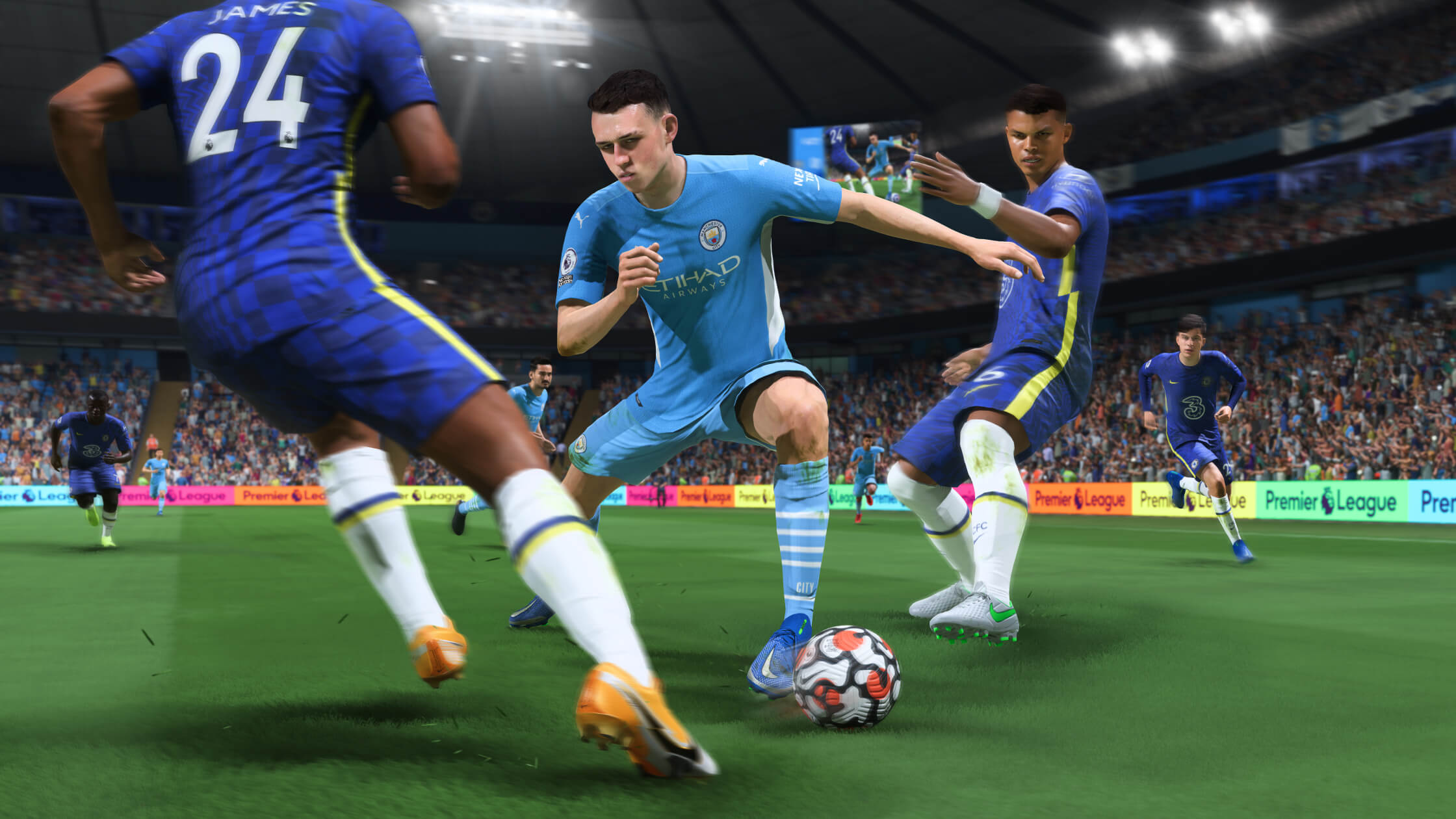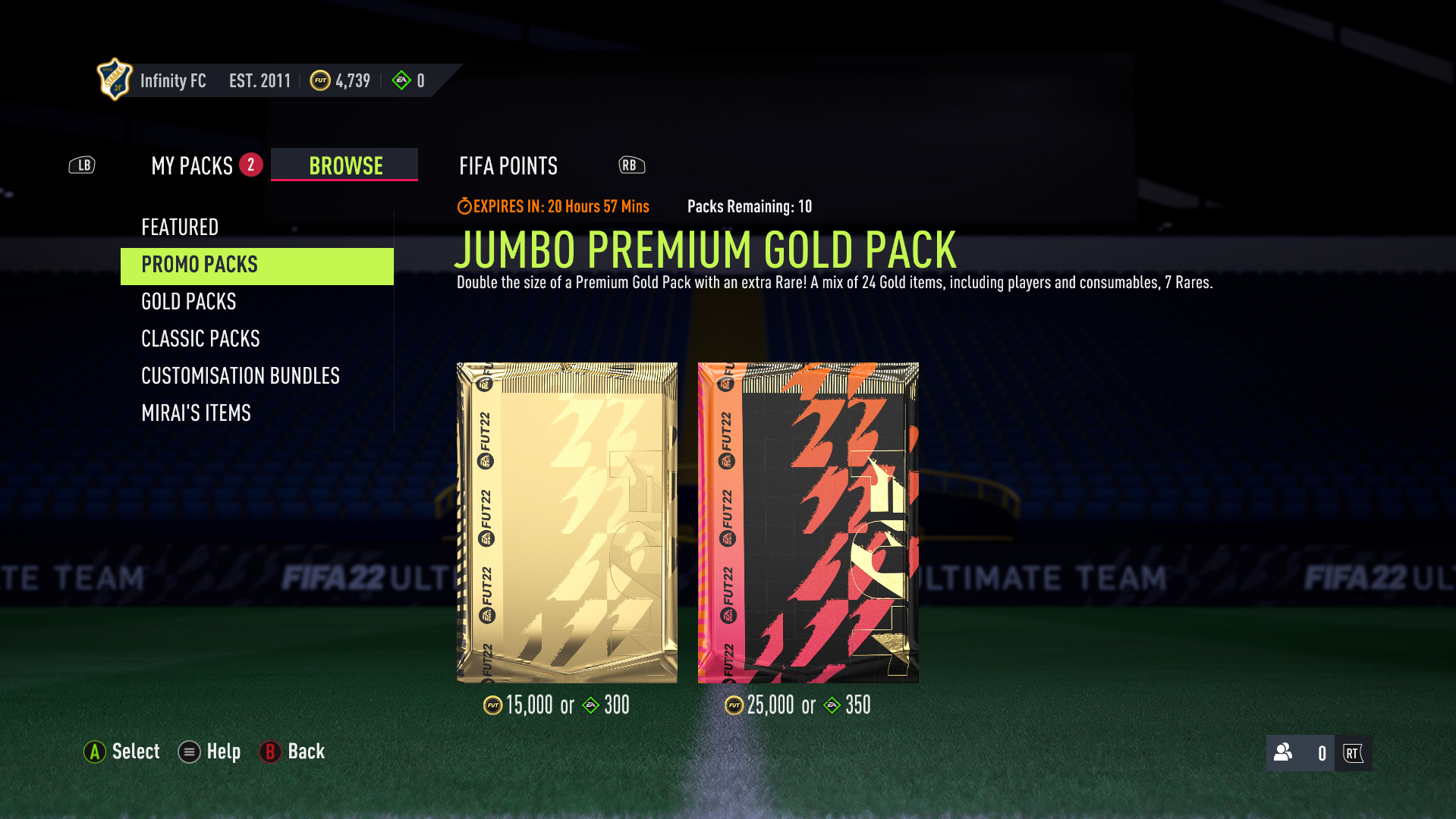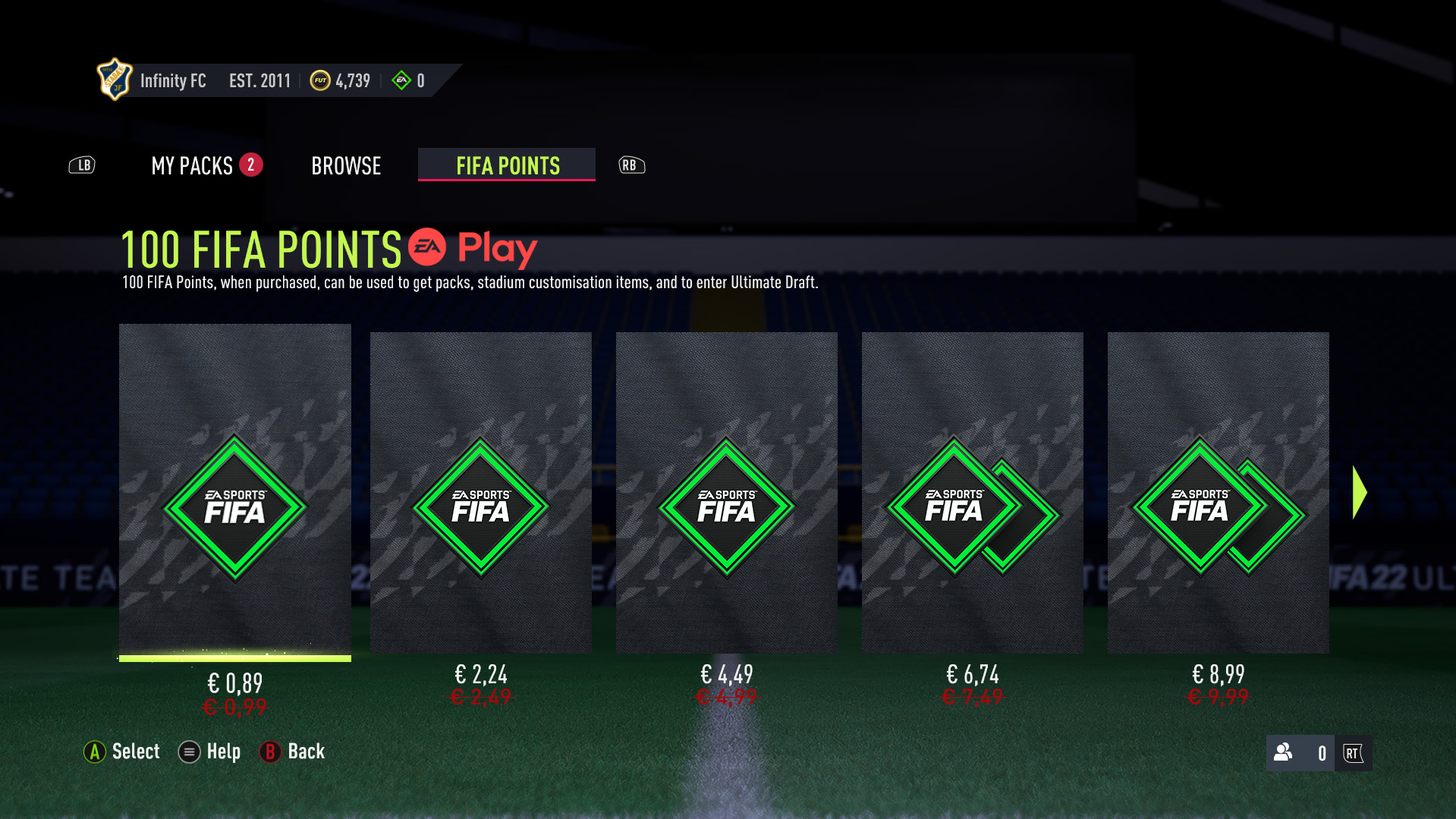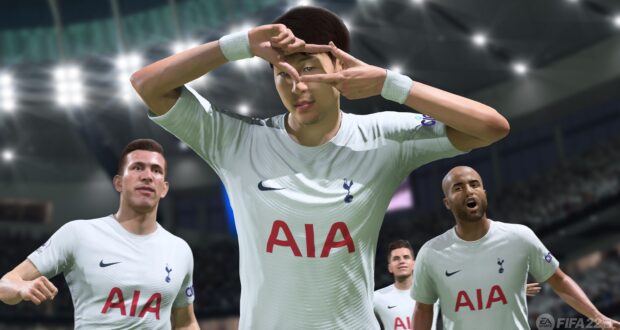After the monumental launch of FIFA 22 which has already become a very successful release, EA is riding on a post-launch high.
However, the fundamental issues with FUT and the game model remain the same, mainly the microtransaction dependence and the heavy reliance on the Pay2Win model. These concerns seem to have some answers, according to Eurogamer, who recently sat down with EA’s Chief Experience Officer Chris Bruzzo to get responses to some of the community’s burning questions.
Hugely Improved FIFA But Same Issues at Heart
FIFA 22 has seen a substantial improvement in gameplay across the board. Career Mode has a new breath of life and Pro Clubs is actually fun this year! FUT and VOLTA continue improving and while the former already has millions of players engrossed in it, the latter is also developing a good fan following now.

However, the major issue that has been holding FIFA back from being universally acceptable still continues to exist in the game. The monetisation of FIFA and FIFA Ultimate Team is a major point of controversy for years and EA seems to have done almost nothing to address the debate.
When quizzed about it, Chris Bruzzo replied, “We have to recognise something like 100 million people played FIFA in some form or another last year. FIFA 21, the PC and console game, 30 million people played FIFA 21.”
“It seems obvious, but that’s a lot of people with very different motivations for playing and expectations for the game. And we have to do our best to serve as many of them as we can,” Chris continued.
“And the truth is, Ultimate Team is the most popular mode in FIFA. So, when you think about a mode that’s got tens of millions of players playing it pretty much all the time, first of all, we have a huge fan base of players who love the mode the way it’s set up today, and they love every aspect of it.”
The Presence of Loot Boxes
When questioned on why loot boxes are included at all, Chris implied that the idea is to mimic the real world into the FIFA games. EA Sport’s motto of “It’s in The Game” is a sentiment that the company sticks to and hence, the volatility of the world of football has been implemented through packs and randomisation of pack contents.
Chris said, “We have created these things over a long period of time to actually mirror what it feels like, the tough strategic choices you have to make when you’re putting a squad together that works uniquely as that squad you want to manage, that you want to play with. That’s why it all fits together the way it does.”

Eurogamer reiterated that their question is not about the pack itself but rather the randomness and the fact that this randomness is facilitated by real-life money.
To this, Chris stated the fact, “Let me be very very (sic) clear about this point: nine out of ten FUT packs that are opened in FIFA are opened with coins. Coins are earned by playing the game. And the other really important thing is that 78 percent of all FIFA 21 players never spend anything in the game.”
We need to highlight that most of the opened packs come from the SBCs players complete in-game and probably EA included them in this statistic otherwise those numbers really don’t add up.
Boils Down to Player Choice
Eurogamer insisted that it’s not the system that exists by itself that is the issue. It’s the concept of rigging the system such that players can choose to buy their way to the top and the Pay2Win concept is hardly fair no matter how many players take that route. Chris stated that the idea of FIFA is to provide tens of millions of players with multiple choices and it is ultimately their wish and decision to pursue their desired route.

They have inculcated many measures to try and make the microtransaction route more transparent, more limiting and more accountable.
However, the “9 out of 10 packs earned” concept still leaves 1 player who would buy their way to glory and to that, Chris said, “The reality – and we study this constantly – FIFA Ultimate Team is by far and away a game of skill. And the player’s skill is by far the fundamental contributor to that player’s success rate.”
Loot Boxes and Gambling
Chris started off by saying, “When I hear about an individual who has spent too much time or too much money in FIFA, it pains me. It drives us, actually. We don’t want that. We’re not building the game for that. So, it drives me to increase awareness around how many controls parents have around spending, not just in our game, but in all games. So, we’re ready. We will work on real solutions. But we need to get to some kind of consensus.”
Asked if there is even a slight chance of the game system changing should multiple countries ban the loot boxes or if FIFA was at the risk of losing its PEGI 3 rating, Chis stated that kids should not be spending in their game in any capacity and that they have been actively working with Microsoft and Sony to regulate account creation and age windows to control and stop any such expenditure.
However, the issue remains, even as far FIFA points getting advertised in a children’s magazine.
“Let me say again, we’re human. That was my team. It was an oversight. And so, they included FIFA Ultimate Team in this toy catalogue. And we have apologised. We said it was a mistake. We do make mistakes,” Chris said.
Put your two eyes 👀 on step two.#ThisIsntOK pic.twitter.com/IA6HRv2Elf
— EASportsFCMistakes (@AllFifaMistakes) September 26, 2020
Distinction of Gambling
With multiple organisations and countries on the verge of classifying loot boxes as gambling, Chris asked if something you can’t even cash out can be classified as gambling.
Despite that, there exist numerous black-market places where FUT Coins are indeed sold for quick bucks and Chris said that he was aware of these deeds.
“Clearly, we know all about that, because we’ve had to put tonnes and tonnes of resources to combat it. It’s an incredible responsibility to ensure the security of our game, so that we make it very difficult to commit fraud. But that’s what that is. And just to be clear, again, we study this. I have the benefit of seeing data. The sellers on the black market, the ones that are actually making money, those are criminals.”

When questioned of the bottom-line regarding microtransactions, the explanation given by Chris went, “I’m going to go back to nine out of 10 people spend on FUT packs. Eight out of 10 people don’t spend in FIFA at all. The ability to spend real-world money in the game represents choice for players. I’m 52 years old as of about a month ago. At 52 I don’t have as much time as I did before. When I was 22, I could play and build the kind of team that I wanted to build. Today, for me, the choice that I made, is to play the game, earn FUT coins and spend a little bit on FIFA Points to help top off my squad. And I feel like that’s a choice I should be allowed to make.”
The interview ended with Eurogamer mentioning that despite less than 30% players spending in-game, the revenue margins of EA speak a different story and especially for FIFA as a franchise. Chris said that the times have changed and the game models have to adapt to the current trends. Games launched are never 100% done and the process has only begun, in order to deliver a complete experience to players throughout the game cycle.
This is a dynamic ecosystem and these revenues are proof that the game is successful and it also helps pay the developers who make this game what it is today.
🎮 FIFA is worth more than £1.47 billion a year to EA – more than 150 million people play it
🎮 Of EA’s £4.1 billion turnover last year, £2.9 billion came from “live services” division
🎮 Video game has influenced real game in terms of sponsorship & licensing deals@mjshrimper— The Athletic | Football (@TheAthleticFC) October 7, 2021
It seems that the FIFA Points/FUT Packs dynamic is set to stay for little longer but big changes are to be expected based on the decisions governments across the world take. What did you make of this interview? Let us know your thoughts in the comments.
 FIFA Infinity The Absolute FIFA Site
FIFA Infinity The Absolute FIFA Site




